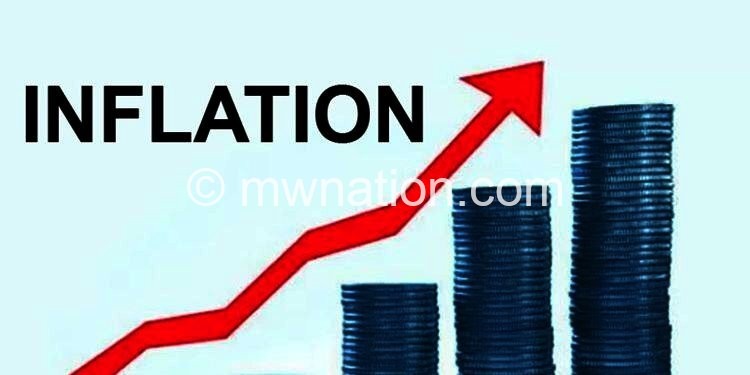IMF sees 2023 inflation at 24.7%
The International Monetar y Fund (IMF) has projected that Malawi’s 2023 annual inflation rate will average 26 percent due to the rising commodity prices in the year.
The projection is 6.5 percentage points above the Reserve Bank of Malawi (RBM) projection for this year at 18.2 percent.

The IMF, in its April World Economic Outlook published on Tuesday, has since underscored the need for the central bank to ensure that monetary policy focuses on keeping inflation on a downward trajectory.
Said the bank: “Central banks need to remain steady with their tighter anti-inflation stance, but also be ready to adjust and use their full set of policy instruments—including to address financial stability concerns—as developments demand.
“On the other hand, fiscal policymakers should buttress monetary and financial policymakers’ actions in getting inflation back to target while maintaining financial stability.”
Malawi’s inflation has been on the rise owing to rising commodity prices mostly food prices.
Already, year-on-year inflation for February was recorded at 26.7 percent, a 0.8 percentage points increase from 25.9 percent in January, according to data from the National Statistical Office.
Meanwhile, Cyclone Freddy, which hit the southern part of the country last month, has also worsened the outlook for both inflation and economic activity due to the serious damage it caused to crops and infrastructure, according to analysts.
Catholic University of Malawi economics lecturer Hopkins Kawaye indicated in an interview that inflation could be on an upward trajectory this year on account of the weather-related shocks.
He said: “Inflation rise is now inevitable. As an agro-based economy if produce is affected in any other way, inflation is definitely affected. It is, therefore, expected that as crops have been destroyed and economic activities also disrupted, food prices will go up.”
The central bank has, meanwhile, hinted there will be policy consideration and re-look towards both inflation stability and economic recovery in view of the Tropical Cyclone Freddy.
In its February Market Intelligence Report published on Friday, the central bank said on top of the tightening of monetary policy stance, domestic factors, mostly weather shocks, remain a major risk to the inflation outlook.
Said the bank: “Besides the human cost and widespread disruptions, Cyclone Freddy has worsened the outlook for both inflation and economic activity due to the serious damage caused to crops and infrastructure.”
NSO published figures show that during the same period last year, inflation was recorded at 13 percent. This means prices of goods and services during the period under review quickened compared to the same period last year.





